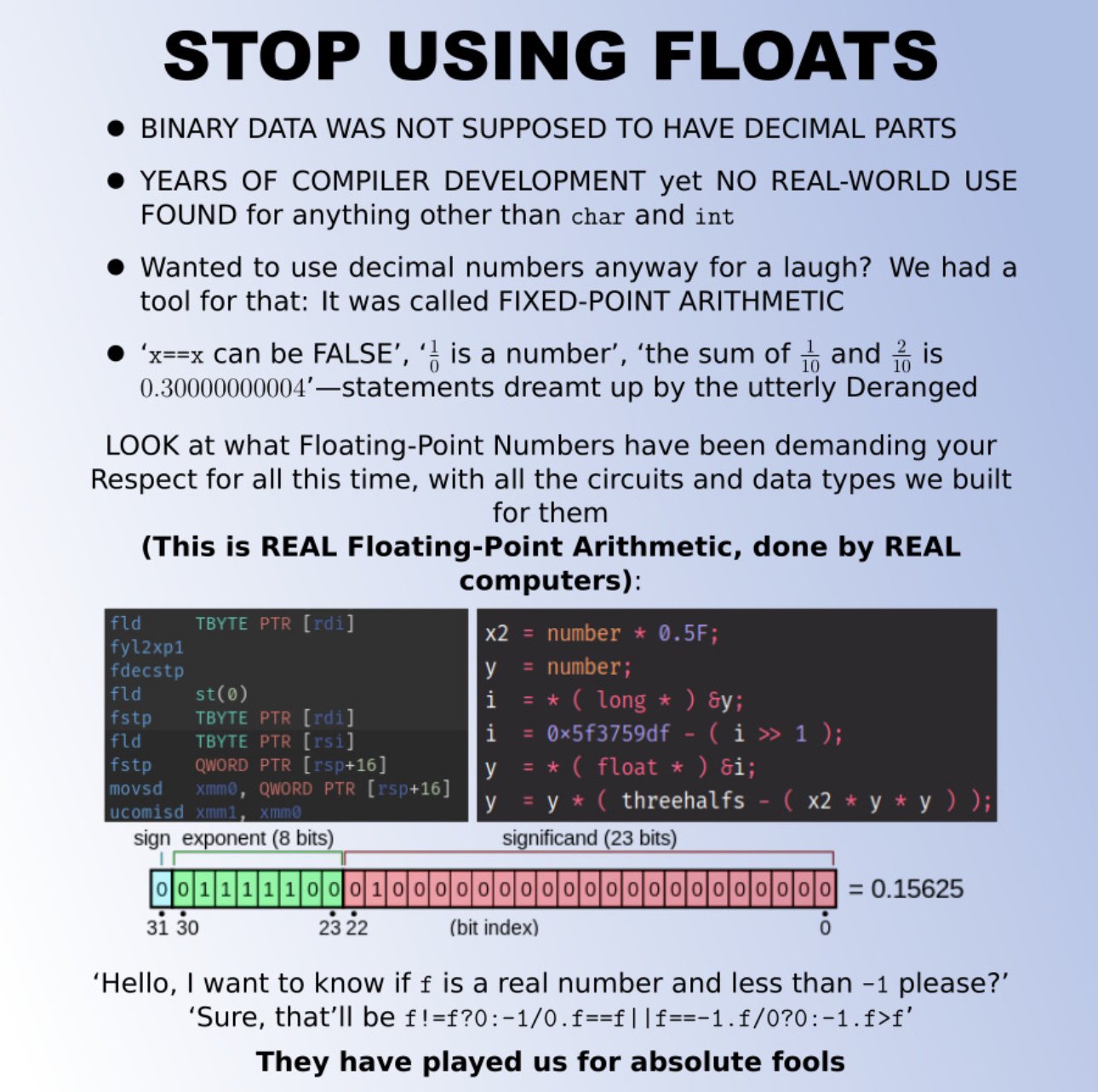this post was submitted on 26 Feb 2024
751 points (95.7% liked)
Programmer Humor
20039 readers
2089 users here now
Welcome to Programmer Humor!
This is a place where you can post jokes, memes, humor, etc. related to programming!
For sharing awful code theres also Programming Horror.
Rules
- Keep content in english
- No advertisements
- Posts must be related to programming or programmer topics
founded 2 years ago
MODERATORS
you are viewing a single comment's thread
view the rest of the comments
view the rest of the comments

Floats are only great if you deal with numbers that have no needs for precision and accuracy. Want to calculate the F cost of an a* node? Floats are good enough.
But every time I need to get any kind of accuracy, I go straight for actual decimal numbers. Unless you are in extreme scenarios, you can afford the extra 64 to 256 bits in your memory
That's not really true and it depends on what you mean. If your decimal datatype has the same number of bits it's not more accurate than base 2 floats. This is often hidden because many decimal implementations aren't 64 bit but 128 bit or more. But what it can do is exactly represent base 10 numbers which is not a requirement for a lot of applications.
You can use floats everywhere where you don't need numbers to be base 10. With base 2 floats the operations couldn't be more accurate given the limit of 64 bits. But if you write
f64 x = 0.1;and one assumes that the computer somehow stored0.1inside x they already made a wrong assumption. 0.1 can't be converted into a float because it's a periodic in base 2. A very very pedantic compiler wouldn't even let you compile that and force you to pick a value that actually can be represented.Down the rabbit hole: https://zeta.one/floats-are-not-inaccurate/
This is exactly my point. Don't use floats when you need to get accurate stuff, but use it when you need a "feel" for it
Floats are accurate. Could you name a situation (except money) where you think floats are not accurate enough to handle it?